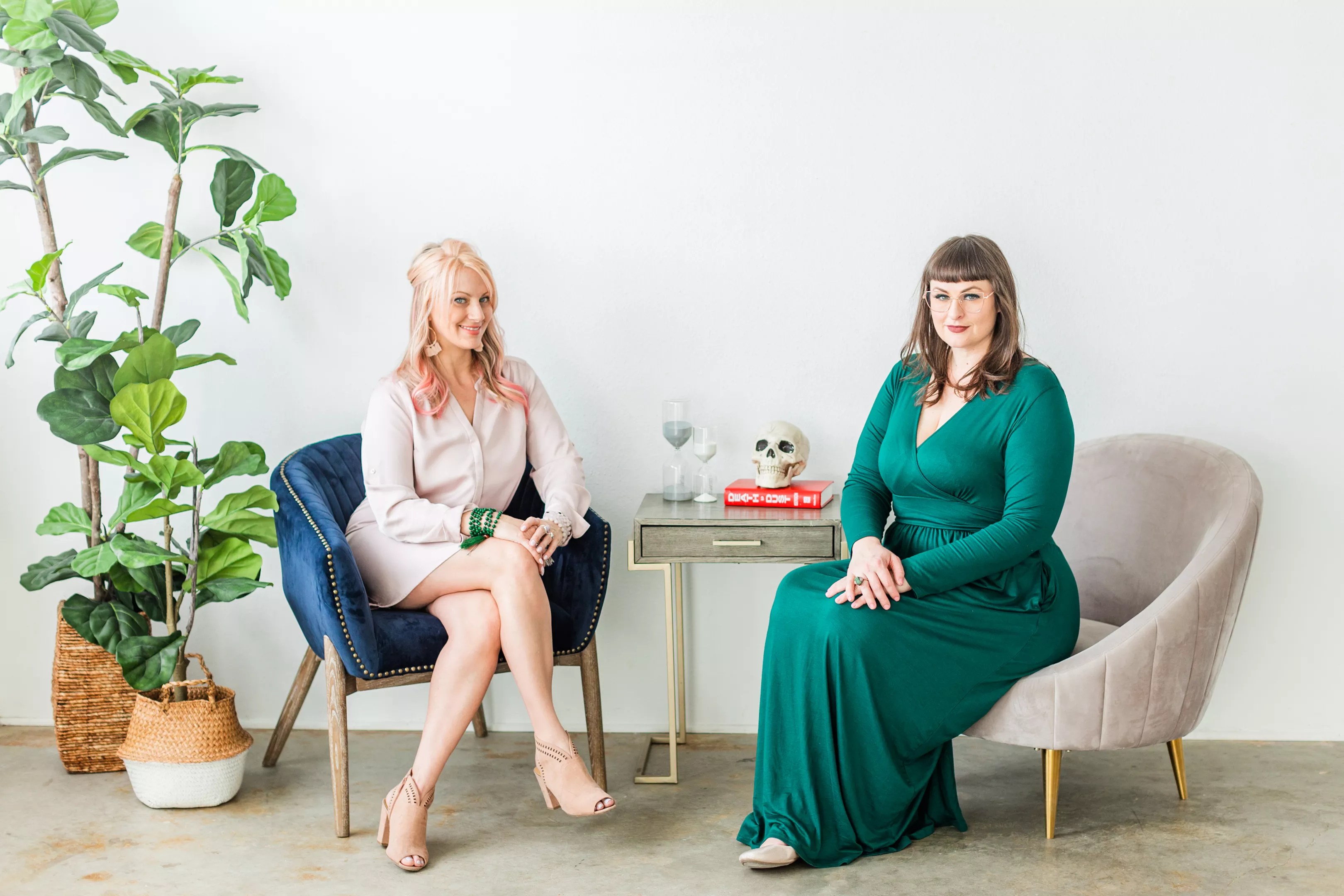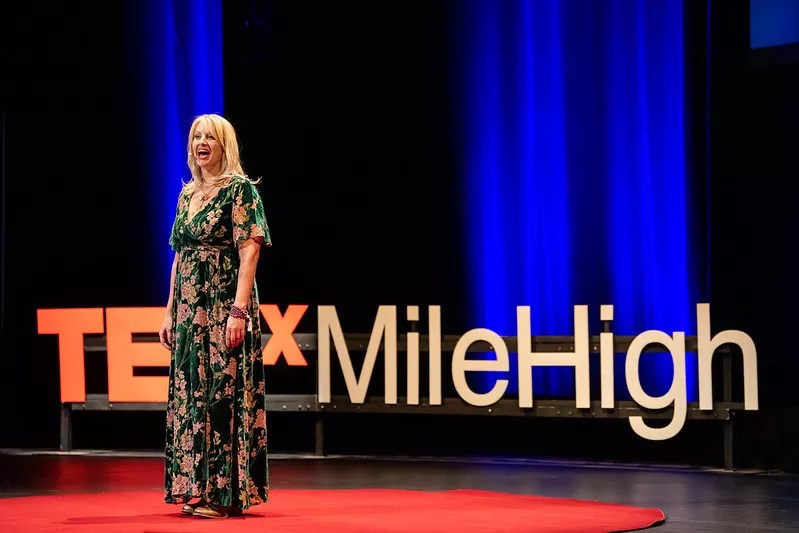
The Deathwives

Audio By Carbonatix
In the late 1990s, Erin Merelli’s first love died in a car crash.
At the time, there weren’t spaces where she could discuss her grief and come to understand it. “I was super alone and always seeking, in various ways throughout college and in my early career, for ways to do death work,” Merelli recalls.
Decades later, she and business partner Lauren Carroll have finally built the reliable space Merelli had longed for. The Deathwives is a collective focused on broadening the conversation about death and helping people feel more comfortable in dealing with it, both professionally and personally.
“It’s been an industry. It’s been very corporate for the last few generations,” Merelli says. “We’re changing that. We’re stirring it up and democratizing death care.”
When Carroll and Merelli founded Deathwives in 2019 and kicked off its first class at the Lumber Baron Inn, they didn’t know the pandemic would soon come and shutter in-person teaching – while also making death a topic at the forefront of everyone’s minds.
In response, Deathwives switched to online programming and has remained that way ever since. Now, starting in May, in-person programming will be back, with two classes in Denver scheduled so far.
Spots are filling up fast, and the first session, on May 20, is already full. A July 15 Death Doula Live Lab is also expected to sell out.
“We were excited to continue teaching online because we were able to reach a broad audience of people, but our heart is really in the local work and the one-on-one work, and so it’s awesome that it’s coming back to Denver and that the classes are filling up,” Merelli says.
Carroll adds that learning physical skills – like shrouding a body and caring for bodies without chemicals or embalming – will be much easier in person. She formerly worked as a funeral director for the Natural Funeral and started educating people about home funerals during that time.
Merelli, who is a death doula, found Carroll on Google and attended one of her workshops. The two dined together afterward and eventually decided to create Deathwives together.
The collective is now a full-time gig for both founders, who stress that the training isn’t just for people who want to work in the death space by becoming funeral directors or death doulas (people who help others at the end of their lives the same way birth doulas help women through pregnancies).
“What we do is really educate families so that they are prepared, that they know all their rights,” Carroll says. “We educate community members so that they’re there to help inform other families of their rights.”
Since the pandemic made more people recognize death around them, Carroll and Merelli built an online platform – Deathfolx – where people could talk with others about the subject and access virtual lessons created by Merelli and Carroll.
“When we started talking, I think other people were just like, ‘Me, too. I want to share my grief,'” Carroll says. “We missed out on so much during COVID. We missed out on funerals; we missed out on grieving together. So when we created this platform, I think people were just like, ‘Oh, good.’ Like, ‘Finally.'”
Deathwives doesn’t just help people deal with the deaths of their human loved ones; it also offers a plan a funeral workshop and a class on dealing with pet death. Merelli says oftentimes people who come to a Deathwives workshop are just looking for language to talk about death.
“There are a lot of entry points to this conversation, but ultimately, it’s a universal conversation, since everybody is going to die,” she says.
Colorado is a state at the forefront of death – offering nearly every burial option, from traditional burial to water cremation to natural organic reduction (also known as body composting) to open-pyre cremation. Carroll and Merelli educate people about those options and tailor programming to different groups. Some workshops are just for an afternoon, and others are six-week commitments during which people can dive deeper.

Erin Merelli spoke at TedxMileHigh.
The Deathwives
As the Deathwives return to in-person teaching, the goal is to connect more people with the mystery of death. Merelli emphasizes that there isn’t one right way to die or experience death, but that people aren’t empowered to select what way will be best for them. Deathwives is working to change that.
“We just want them to know that they have options at the end of the day,” she says. “A funeral should be the grand finale, the biggest reflection ever of somebody’s life, and the impact of their life, and the way that they were loved…and that’s not the case. That’s not the truth most of the time.”
Carroll says that over the years, they have found that almost everyone has a story of attending a funeral that didn’t honor the fullness of the person who died. By preparing people to be comfortable advocating for themselves and others when it comes to after-death care, Deathwives can make a difference.
Connecting individuals who are craving the same conversations is what Carroll and Merelli are most looking forward to about bringing back in-person programming. In addition to the May and July classes, Deathwives plans to schedule many more in-person events in the coming months – including retreats, with the possibility of hosting a plant-medicine event that explores how psilocybin can help people process death.
“I hate that we’ve kept this as a secret from so many people for so long,” Carroll says. “We really do see it helping with those death anxieties, those fears and with our own trauma. … You can’t not know that there’s so much more, so much bigger, than us if you’ve done psilocybin the right way.”
Plant medicine may not be for everyone, but that’s not the point: Everyone who is interested can find their niche in the Deathwives’ many offerings.
“Everybody needs this knowledge. Everybody needs this support. Everybody is going to go through this at some point,” Carroll says. “No matter who you are, no matter where you’re from, we have always been the ones who care for our dead. We have always been the ones who sit there with our dying.”